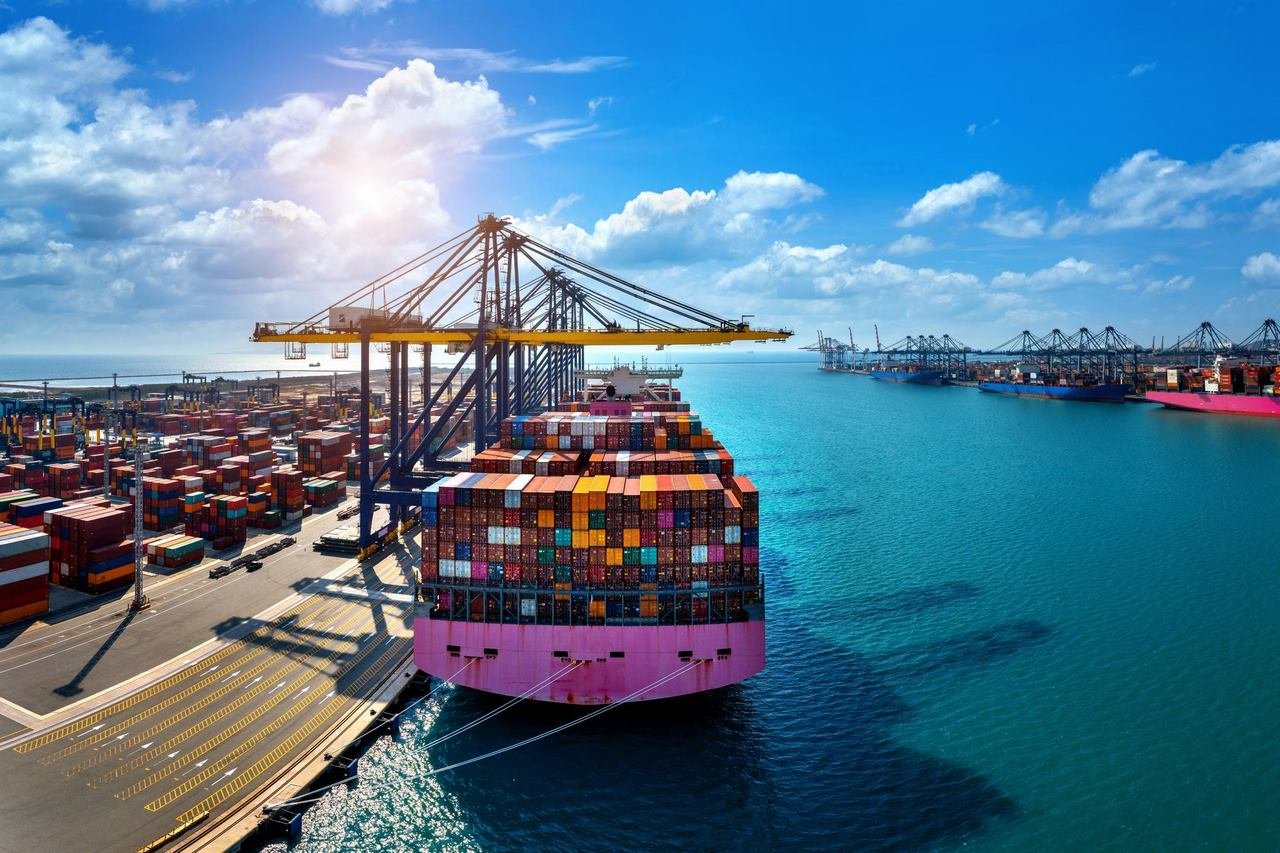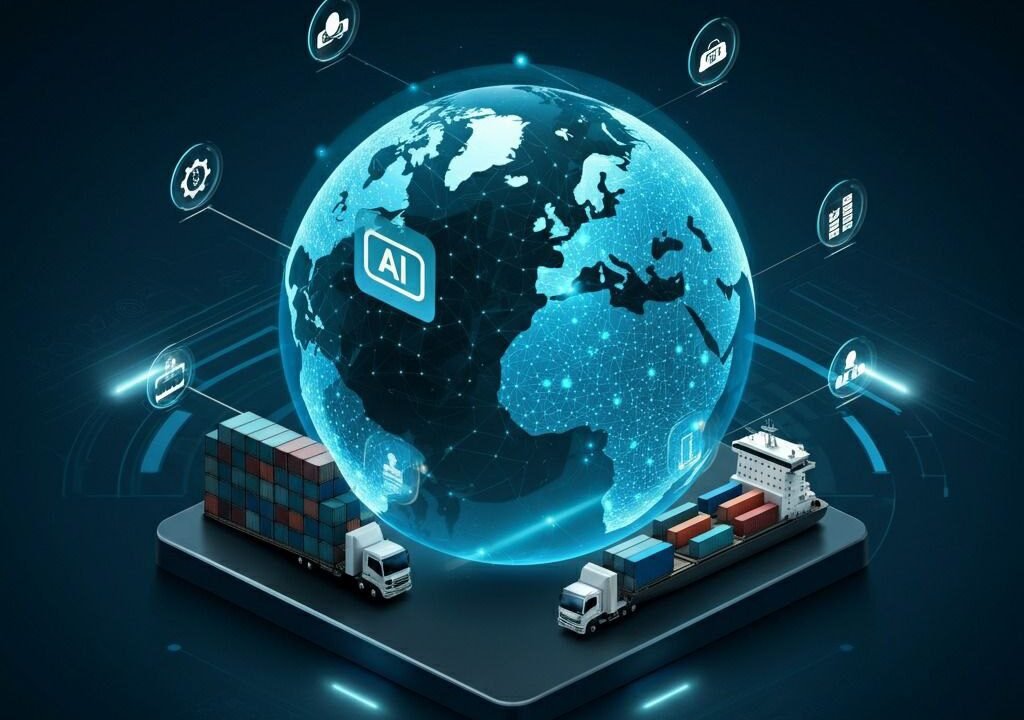Artificial Intelligence (AI) is revolutionizing supply chain management by enhancing efficiency, reducing costs, and improving decision-making. With the rapid advancement of technology, AI is transforming how businesses predict demand, optimize logistics, and streamline operations. In this article from Steelbridge Export, we explore the key ways AI is reshaping supply chain management and how businesses can leverage it for competitive advantage.
1. Demand Forecasting and Inventory Optimization
AI-powered predictive analytics enables businesses to forecast demand accurately by analyzing historical data, market trends, and external factors such as economic shifts and seasonal changes. This helps companies:
- Reduce overstock and understock issues.
- Minimize waste and excess inventory.
- Optimize storage costs by maintaining the right amount of stock.
With machine learning algorithms, businesses can continuously refine their demand forecasts, leading to better supply chain planning and efficiency.

2. Automating Logistics and Route Optimization
AI-driven logistics management systems analyze real-time traffic, weather conditions, and fuel efficiency to determine the best routes for delivery. Benefits include:
Reduced transportation costs by selecting optimal shipping methods.
Faster deliveries through real-time route adjustments.
Lower carbon footprint by optimizing fuel consumption.
Companies like Amazon and UPS leverage AI-powered route optimization to ensure timely and cost-effective deliveries.
3. AI-Powered Warehouse Management and Robotics
Automation and AI-driven robotics are revolutionizing warehouse operations by:
Using robotic process automation (RPA) for sorting, packing, and inventory tracking.
Enhancing warehouse productivity with AI-powered robotic arms.
Reducing labor costs and improving efficiency in fulfillment centers.
AI-driven smart warehouses significantly improve speed, accuracy, and efficiency in supply chain management.
4. Supply Chain Risk Management and Fraud Detection
AI plays a critical role in identifying potential supply chain disruptions and fraud risks by:
Monitoring real-time supplier performance and risk factors.
Detecting anomalies in financial transactions and procurement processes.
Preventing counterfeit products by verifying authenticity using blockchain and AI.
This proactive risk management helps businesses maintain stable and secure supply chains.
5. AI in Supplier Selection and Relationship Management
AI-driven systems help businesses evaluate and select reliable suppliers by:
Analyzing supplier performance metrics, compliance records, and past transactions.
Automating the vendor qualification process for faster decision-making.
Enhancing negotiation strategies using AI-driven market insights.
This ensures companies partner with the most efficient and cost-effective suppliers while reducing operational risks.

6. Real-Time Data Analytics for Smarter Decision-Making
AI enables real-time data collection and analysis from multiple sources, helping businesses:
Gain instant insights into inventory, logistics, and supplier performance.
Improve supply chain visibility by integrating data across all departments.
Make data-driven decisions faster than traditional manual methods.
AI-powered control towers provide real-time dashboards that allow managers to detect issues and respond proactively.
7. AI and Sustainability in Supply Chain Management
With increasing global focus on sustainable supply chains, AI helps businesses:
Reduce carbon emissions by optimizing transportation and production.
Improve energy efficiency in manufacturing and logistics.
Ensure compliance with environmental regulations through automated reporting.
Companies integrating AI-driven sustainability measures can enhance their brand reputation and achieve long-term profitability.
Conclusion
AI is transforming supply chain management by improving demand forecasting, optimizing logistics, enhancing risk management, and enabling smarter decision-making. Companies that integrate AI-driven solutions can significantly improve efficiency, reduce costs, and gain a competitive edge in global markets.
As AI technology continues to evolve, businesses that embrace automation and data-driven supply chain strategies will lead the future of global trade.
read more:
- EPCF Model Explained: Transforming Solar Energy Projects in Emerging Markets
- HOW DEEP LEARNING IS TRANSFORMING GLOBAL TRADE ANALYTICS
FAQs on AI in Supply Chain Management
- 1. How does AI improve demand forecasting and inventory management?
AI uses predictive analytics and machine learning to analyze historical data and external factors, enabling accurate demand forecasts that reduce overstock, understock, and waste while optimizing inventory costs. - 2. In what ways does AI optimize logistics and delivery routes?
AI systems analyze real-time traffic, weather, and fuel efficiency data to determine optimal delivery routes, reducing transportation costs, enabling faster deliveries, and lowering carbon emissions. - 3. How is AI transforming warehouse operations?
AI-driven robotics and robotic process automation (RPA) enhance warehouse productivity by automating sorting, packing, and inventory tracking, which increases speed and accuracy while reducing labor costs. - 4. What role does AI play in supply chain risk management and fraud detection?
AI monitors supplier performance and financial transactions to detect anomalies, prevent fraud, and verify product authenticity, helping businesses maintain secure and stable supply chains. - 5. How can AI assist in supplier selection and management?
AI evaluates supplier performance metrics and compliance, automates vendor qualification, and provides market insights to streamline selection and negotiation processes, reducing operational risks.











1 Comment
This is exactly what i was looking for, thank you so much for these tutorials